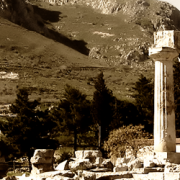Music During Prayer
One of the men in the church I serve mentioned something to me that I had never thought of before. He said that music played during prayer distracted and confused him. Whether it was the keyboards lightly played or a guitar quietly picked, it was distracting to his focus upon and attention to the prayer. And he wasn’t speaking of music poorly played. In fact, the better the ability of the guitarist or keyboardist, the more distracting it can be. He wasn’t sure if he was to listen to the music or the prayer. He wasn’t sure if the leadership wanted him to meditate to the music or participate in the prayer.
Music well done is hard to ignore and music poorly done is difficult to bracket out.
Was he to be engaged in the prayer or was he to be enjoying the music?
My first reaction (in myself) to his comment (and it was a comment, not a complaint), was that we can multi-task, it’s no big deal. We can enjoy the sweetness of the music and follow the rhythm of the prayer and amen its requests and affirmations both at the same time. But as I thought about it, I had to be honest with myself and admit that I, too, find myself distracted by music played during prayer. I listen more to the music than I do to the prayer. I find myself commenting to myself about the music during prayer: “O, that’s nice.” Or, “That sure is repetitive.” Or, “I bet he’s bored.”
Again, my first reaction in myself to my friends’ comment about music during prayer had to do with multi-tasking. But should we multitask in prayer? Isn’t prayer task enough? What’s the purpose of music during prayer anyway? If it’s to set a mood, for me, the mood of the moment easily overshadows the prayer of the moment. The mood the music creates can crowd out the plea of the prayer.
The music makes it a more emotional moment, but I am not convinced it makes it a more spiritual moment.
In fact, for some people, it can distract them from the spirituality of the moment. This is obviously part of a larger conversation about substituting emotion for spirit – something that is easy to fall into – and a dynamic we should look into.
I’m sure many would make the argument that since prayer is the continuation of worship, and since the worship songs are carried on the wings of music, the prayer can use the same musical updraft that’s been created. Maybe. I don’t know. With worship songs, the words and music and melody and rhythm are woven and knit together – they are parts of a whole. In thinking of one you think of the other. Not so with prayer.
What do you think? I know that with the great need that billions have of knowing Christ and the mind-boggling social and environmental needs of our planet, music during prayer isn’t a burning question, but it is a relevant one. I haven’t reached any firm decision – I’m boldly planting my feet on both sides of the fence! I know that for some, music and prayer go together like peanut butter and jam. To think of a musically unadorned prayer is like a bride without her wedding dress on her wedding day – an unspeakable tragedy. What about you – have you thought of this before? Have you thought through this before? Chime in.











